Top 5 Alternatives to Bitwarden: Which App is Best in 2025?
Bitwarden is an excellent password manager, and its free plan makes it genuinely tempting. Compared to the top brass, Bitwarden isn’t the most feature-rich option. As of now, it can’t store SSH keys, databases, and API credentials like other top password managers.
Its free plan can protect unlimited devices but has some limitations, like limited two-factor authentication (2FA) support and restricted breach reports. That’s why I thoroughly tested 20 top names in the industry and picked the best Bitwarden alternatives.
Dashlane is the best Bitwarden alternative for comprehensive password safety. Unlike Bitwarden, it’s more generous with password-sharing and has a built-in VPN. You can try Dashlane risk-free with its 30-day money-back guarantee.
Quick Guide: Best Bitwarden Alternatives in 2025
- Dashlane — #1 alternative to Bitwarden with a versatile vault and advanced features like dark web monitoring and a built-in VPN.
- 1Password — Travel Mode keeps sensitive credentials safe while traveling, but it doesn’t have live chat customer support.
- NordPass — Privacy-friendly location in Panama aligns with its no-logs policy, but it lacks recovery options.
- RoboForm — Outstanding auto-fill capabilities that work flawlessly with complex forms, but it doesn’t have niche storage categories for SSH keys and databases.
- Keeper — Keeper DNA lets you add a smartwatch as a 2FA method for easy vault access, but its data breach scanner is only available as a paid add-on.
The Best Bitwarden Alternatives — Full Test Results in 2025
1. Dashlane — Best Overall Bitwarden Alternative for Password Security
Key Features:
- Encrypts your credentials on your device with a military-grade 256-bit cipher
- Has a zero-knowledge architecture, password auditing, a password generator, dark web monitoring, and more
- Offers a web app for Windows but has apps for macOS, iOS, and Android
- Prompt customer support via live chat, email, and an online knowledge base
- Includes a 30-day free trial and a month-long money-back guarantee
Dashlane is the #1 alternative to Bitwarden. Unlike Bitwarden, Dashlane can store SSH keys, API credentials, membership cards, databases, and more. Its dark web monitoring is also more effective at identifying data breaches in unknown corners of the internet. Here’s a summary of what you get with Dashlane:
- Password Health — identifies weak, reused, and compromised passwords so you can replace them with strong ones to prevent potential breaches.
- Password Sharing — lets you share passwords with trusted contacts and adjust access rights (the free plan allows sharing for up to 5 users).
- Built-in VPN — ensures anonymous browsing by encrypting your online traffic (although it’s not as good as top standalone VPNs, it’s a useful extra feature).
- Passkeys — provides a phishing-proof way to log into your accounts without entering your password.
- Dark web monitoring — checks if your credentials have been leaked on the dark web so you can immediately change your passwords to avoid damage.
Its auto-save and auto-fill functions made creating and signing into my accounts easy. While Bitwarden’s auto-save worked fine, its auto-fill wasn’t as seamless. I had to click the extension icon and pick the details I wanted to use. I didn’t have this issue with Dashlane and could pause this function for specific sites.
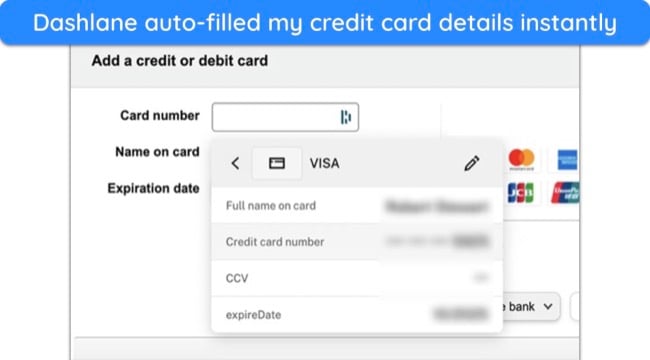
You can use Dashlane’s app on macOS, iOS, and Android. It replaced its Windows app with a web-based version through Chrome, Firefox, Edge, and Safari extensions. Unlike Bitwarden, Dashlane maintains feature parity in its desktop and mobile apps. I had to give accessibility permissions for features like auto-fill to work, and Dashlane took care of the rest independently.
The only drawback is that Dashlane’s free plan only lets you store 25 passwords, whereas Bitwarden’s free version has unlimited storage. However, this should be enough to store the most commonly used credentials. Dashlane also offers all the critical features to free users, so the free plan isn’t as bad as it sounds.
I suggest getting Dashlane’s Premium plan, as it includes all the premium features like a VPN, secure sharing, real-time phishing alerts, and passkeys. Dashlane has a 30-day free trial and a 30-day money-back guarantee so you can check out all of its features risk-free and see if it’s the right choice.
2. 1Password — Travel Mode Hides Sensitive Data While Crossing Borders
Key Features:
- Uses 256-bit AES encryption and TLS and SRP protocols to protect data in transit
- Has a zero-knowledge architecture, Watchtower, Passkeys, Privacy Cards, and Masked emails
- Easy-to-use desktop and mobile apps with browser extensions for Chrome, Firefox, Edge, Brave, and Safari
- Troubleshoot via email, community forum, and its online knowledge base
- Offers a 14-day free trial but no free plan or money-back guarantee
1Password’s Travel Mode hides your vaults except those you’ve marked safe for travel. If your device is lost, stolen, or inspected by officials, they can’t see sensitive information stored in hidden vaults. Therefore, it lets you control what data anyone can see if they randomly inspect your device. 1Password also safeguards your data with:
- Watchtower — monitors your saved login details for vulnerabilities and alerts you to weak, reused, and compromised passwords so you can take corrective action.
- Privacy Cards — are virtual credit cards that work as a buffer between your actual card and online merchants so that your real card details aren’t vulnerable.
- Masked Emails — creates anonymous email IDs when you sign up for websites to minimize your actual email address exposure and the likelihood of spam.
- Passkeys — provides passwordless access to supported sites (works on Windows, Mac, Linux, Android, and popular browsers like Chrome, Edge, Safari, and Firefox).
Besides passwords, 1Password can store API credentials, passport details, database logins, crypto private keys, and server access information. This alone makes it better than Bitwarden’s less versatile vault. It has several templates to store data, including Notes, Identity, Bank Account, and Login. Just select one and type in what you want to save.
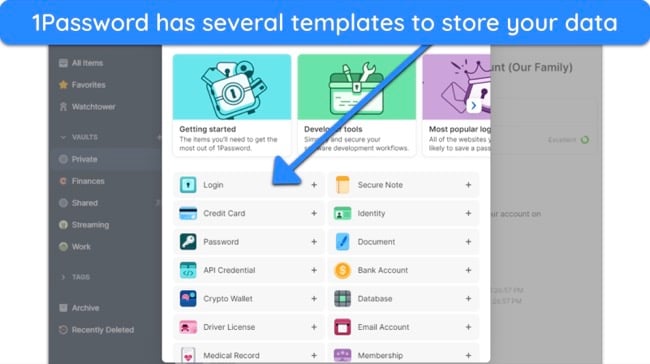
The desktop and mobile apps are super user-friendly and auto-sync vaults across all your devices. Its auto-fill was smoother than Bitwarden’s and required no clicks unless I had to log in to an account with more than one set of login information stored.
Unfortunately, 1Password doesn’t have live chat support, which I consider a must-have for a password manager. However, its email support is super efficient and compensates fully. I got a detailed reply to my query within 30 minutes, whereas typical email responses take several hours. You’ll also find answers to most of your queries in its knowledge base.
I recommend 1Password’s Individual plan as it doesn’t lack any features. The more premium plans offer more users and are better suited for organizations. Although it doesn’t have a free plan, you can try 1Password risk-free with its 14-day free trial. It doesn’t have a refund policy, but 2 weeks is more than enough time to test if it suits you.
3. NordPass — Based in Privacy-Friendly Panama and Guarantees Zero Logs
Key Features:
- Encrypts your passwords locally (on-device) with XChaCha20 and offers several multi-factor authentication options
- Includes a data breach scanner, password audit, password generator, passkeys, and Emergency Access
- Works on all popular platforms and has a consistent, user-friendly interface across all apps
- Has 24/7 live chat, email support, and detailed online guides for troubleshooting
- Provides a 30-day free trial and an equally-long money-back guarantee
NordPass’ location in Panama makes it more privacy-friendly than Bitwarden, which is US-based. Panama has no data retention laws, while the US is part of the 5 Eyes surveillance group. While both contenders use a zero-knowledge architecture and comply with GDPR and CCPA, NordPass’ privacy-friendly location gives it an edge. Plus, it offers:
- Data Breach Scanner — checks if the data stored in your vault has been breached, including credit card details and multiple email addresses (only available on paid plans).
- Online storage — lets you attach files to items stored in your vault, though the file size is capped at 50MB, and each premium user gets up to 3GB of storage.
- Emergency Access — adds trusted contacts to access your vault in emergencies, but the recipients need a NordPass account.
- Password Health — keeps track of your overall password safety by identifying reused, old, and weak passwords (it doesn’t show an overall safety score like 1Password).
Importing credentials is much easier on NordPass than on Bitwarden. NordPass has a separate section where you can import data from external sources. I transferred my passwords from my Mac’s Safari browser to NordPass in just a minute. In contrast, Bitwarden’s open-source nature can make it confusing, especially for beginners.
With NordPass, I shared my data with trusted contacts in a few clicks. You can give them full or limited rights. Full rights mean they can view and edit the shared item, while limited rights only let them use it without seeing the password. This is similar to ‘Bitwarden Send,’ except it doesn’t have a 1GB file size limit, but the recipient must have a NordPass account.
Unfortunately, NordPass lacks recovery options. You’ll get a 24-character recovery code during sign-up, which you must note down somewhere safe. If you lose it and forget your master password, you’ll lose your vault. However, Bitwarden has the same limitations. If you’re forgetful, pick a top password manager with multiple recovery options.
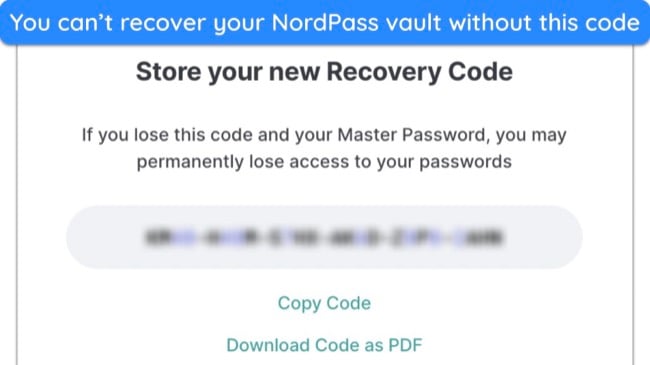
NordPass’ Premium plan is a great deal at just per month. It includes all the premium features, including email masking, data breach scanning, and secure sharing. You can try it risk-free with its 30-day free trial and its 30-day money-back guarantee, giving you 60 days to test it thoroughly.
4. RoboForm — Excellent Auto-Fill Capabilities With Customization Options
Key Features:
- Uses 256-bit encryption with PBKDF2 SHA256 to provide bank-grade safety for your passwords
- Includes a Security Center, password generator, passkeys, secure sharing, and Emergency Access
- Native apps for Windows, iOS, and Android and works on Mac through browser extensions
- Offers fast support through live chat, email tickets, and a thorough knowledge base
- Has a 30-day money-back guarantee besides a free trial on its Premium and Business plans
RoboForm’s auto-fill capabilities are one of the best and certainly more advanced than Bitwarden’s. In my tests, RoboForm tackled multi-page, complex registration forms and auto-filled credit card information, shipping address, and even travel booking details. Over time, it learns the pattern and remembers your entries for future use.
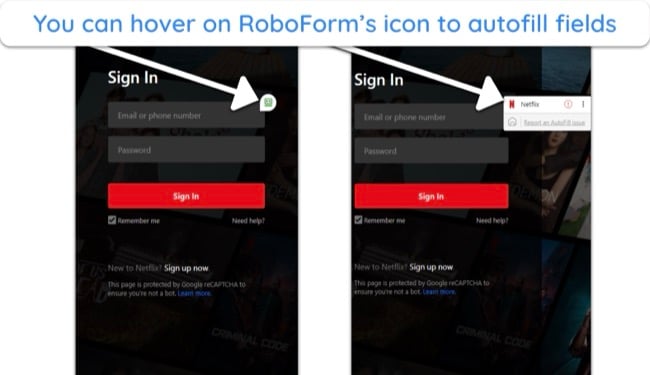
You can set up 2FA via email, SMS, and authenticator apps like Google Authenticator or Authy. Unlike Bitwarden, it doesn’t support physical USB keys like YubiKey, but having an authenticator app is enough to prevent unauthorized access. RoboForm can also work as a TOTP authenticator to access other accounts, which makes it versatile.
I was surprised that RoboForm’s password generator can create passwords up to 512 characters long, compared to Bitwarden’s 128-character limit. I could generate passwords on the fly when signing up without opening the app or using its browser extensions. It automatically asked to create passkeys on supported sites. In addition, RoboForm protects you with:
- Security Center — analyzes your stored passwords and calculates their strength (in my tests, it identified duplicate, weak, reused, and compromised passwords).
- Robust privacy policy — has a zero-knowledge architecture and complies with GDPR (despite being set in the US, it has cleared an independent audit by Secfault Security).
- Secure sharing — lets you share individual items on the free plan and folders on the premium versions, with customizable access levels.
Like Bitwarden, RoboForm’s vaults can’t store SSH keys and databases. However, you can store niche items in Safenotes, which is just as secure, but you won’t be able to autofill them. I liked that it sorts your logins based on how frequently you use them, making them easy to find. You can also club them in folders and sub-folders to organize them.
I suggest subscribing to RoboForm’s Everywhere plan because it allows folder sharing and using it on multiple devices simultaneously (the free plan supports 1 device at a time). Its Premium and Business plans offer 30 and 14-day free trials, respectively. Regardless, it’ll protect your purchase with a 30-day money-back guarantee.
5. Keeper — Keeper DNA Lets You Access Your Vault Through a Smartwatch
Key Features:
- Has a zero-knowledge architecture and uses 256-bit encryption with multiple 2FA options
- Includes a password generator, Security Audit tool, BreachWatch, Thrash Bin, and KeeperChat
- Compatible with Windows, macOS, Linux, iOS, and Android and has extensions on popular browsers
- Quick support via live chat, email ticket system, phone, and a rich knowledge base
- Comes with a 30-day free trial
Keeper DNA is a 2FA method that lets you access your vault with your smartwatch. This is useful when you don’t have a phone or an authenticator app. It works with Apple Watch and Android Wear devices. To activate it, go into the 2FA menu, select ‘Smartwatch (Keeper DNA),’ and pair your watch with Keeper. Besides that, it also has:
- Thrash Bin — lets you restore accidentally deleted passwords just like recovering a file from your computer’s Recycle Bin.
- KeeperChat — ensures secure chats but only with other Keeper users (you can retract sent messages and set a self-destruct timer for them).
To create a new record, select a category from the ‘Record Type’ drop-down menu and enter your credentials. I like that Keeper has specific categories like birth certificates, driving licenses, and databases. You can also import credentials, but if you do that before installing the KeeperFill browser extension, it won’t detect saved logins.
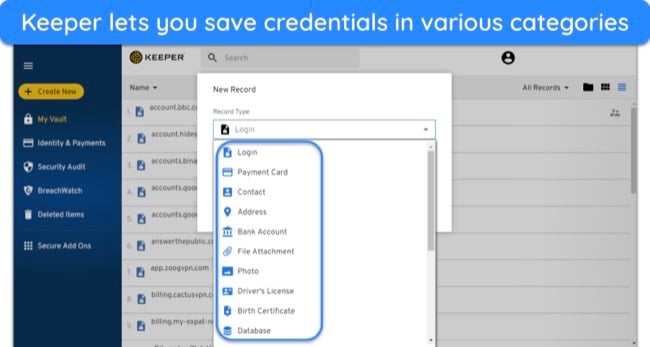
My only reservation is that Keeper’s BreachWatch is a paid add-on, while other top password managers offer dark web monitoring on free trials. However, I’m willing to forego this lacking because Keeper excels in almost every other aspect. If dark web monitoring is a must-have for you, I suggest using Dashlane instead.
The Personal plan is affordable and offers unlimited devices, auto-sync, password sharing, Emergency Access, and more. While it has no refund policy, you can try Keeper risk-free with its 30-day free trial. Once it expires, you’ll switch to the free version, limited to 10 records.
Quick Comparison Table: 2025’s Best Bitwarden Alternatives
| Password Manager | Encryption | Free plan | Encrypted storage | Dark web monitoring | Starting price | Money-back guarantee or free trial |
| Dashlane | AES 256-bit | ✔ | 1GB | ✔ | $4.99 | 30 days |
| 1Password | AES 256-bit | ✘ | 1GB | ✔ | $2.99 | 14-day Free Trial |
| NordPass | XChaCha20 | ✔ | 3GB | Breach scanner | 30 days | |
| RoboForm | AES 256-bit | ✔ | ✘ | Breach scanner | $0.99 | 30 days |
| Keeper | AES 256-bit | ✔ | 10GB | ✘ | $1.46 | 30-day free trial |
Why You Should Pay for a Password Manager
Free plans often only offer core functionalities and lack advanced security features. For instance, Bitwarden’s free plan doesn’t include Emergency Access, and its 2FA options are limited to email and authenticator apps.
Even though there are some good free password managers out there, I still recommend getting a premium plan from a top password manager like Dashlane. The extra features you get provide additional layers of security to your passwords. For instance, a built-in VPN makes you anonymous online and protects you from snoopers.
You’ll also get features like:
- Unlimited device syncing — free plans often only support 1 device, while premium plans work on multiple devices and auto-sync your data across all of them.
- Dark web or breach monitoring — many premium password managers include dark web monitoring, while most free ones offer limited data breach scanning.
- Built-in VPN — an integrated VPN ensures anonymous browsing by encrypting your traffic. It’s rare to find a free password manager with a built-in VPN.
- Encrypted storage — you’ll get encrypted storage with a premium password manager. This lets you save files, attachments, and other sensitive details besides passwords.
- Advanced auto-fill — in my experience, free password managers don’t have the best auto-save and auto-fill abilities — it’s often buggy and doesn’t work with complex forms.
How I Tested and Ranked the Best Bitwarden Alternatives in 2025
While testing various password managers against Bitwarden, I evaluated them based on these factors:
- Strong security — includes military-grade 256-bit encryption standards, a zero-knowledge architecture, a proven no-logs policy, and multi-factor authentication.
- Quality features — like a password generator, password health checker, built-in VPN, and dark web monitoring are useful extras that help protect your credentials.
- Ease of use — lets you use the password manager on all your devices via auto-sync and import or add credentials without hassle.
- Compatibility — ensures that your password manager works on popular platforms and browsers, like Windows, macOS, iOS, Android, Chrome, Firefox, Safari, and Edge.
- Value for money — evaluates if a password manager’s performance and features justify its price. I picked contenders that offer the best value for money.
FAQ: Bitwarden Alternatives
What’s the best open-source password manager?
Can I use a free password manager?
What’s the best alternative to Bitwarden?
Use the Best Bitwarden Alternatives in 2025
Bitwarden is a solid password manager with an enticing free plan. Comparatively, its free plan isn’t as good as other contenders’. I don’t recommend using a free version either way, as it often has limitations like device caps, limited storage capabilities, and lack of advanced features like dark web monitoring. After extensive testing, I picked the best alternatives to Bitwarden.
Dashlane is my #1 pick because of its best all-around performance. Its auto-fill function is much better than Bitwarden’s, letting you fill in complex registration forms in a few clicks. It also offers valuable extras like a built-in VPN for anonymous browsing and dark web monitoring. You can try Dashlane risk-free with its 30-day money-back guarantee.


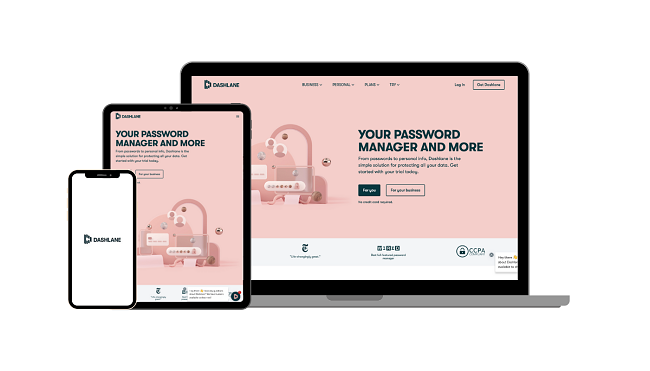
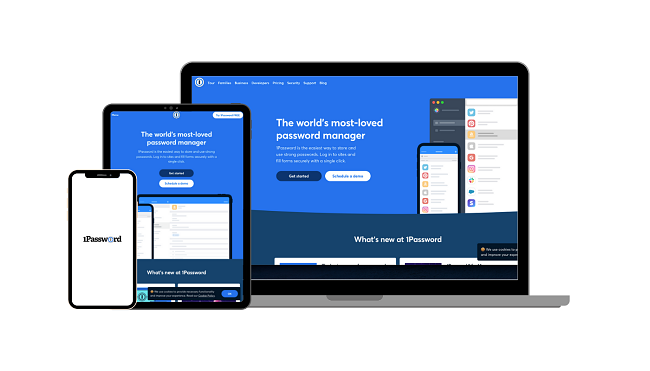
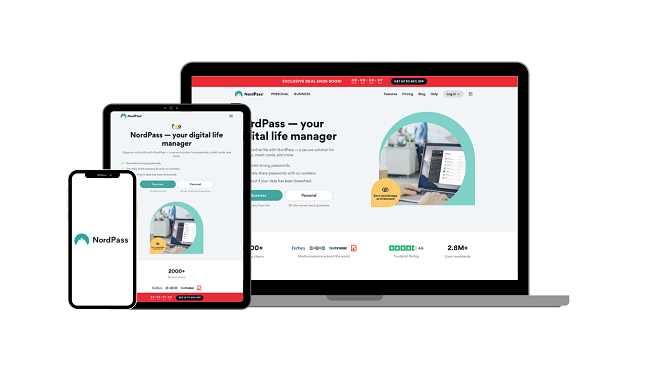
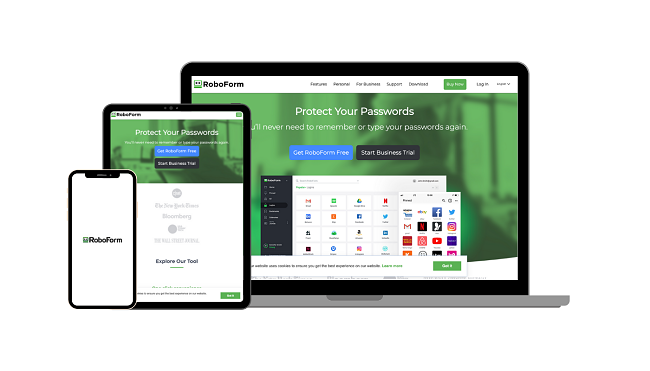
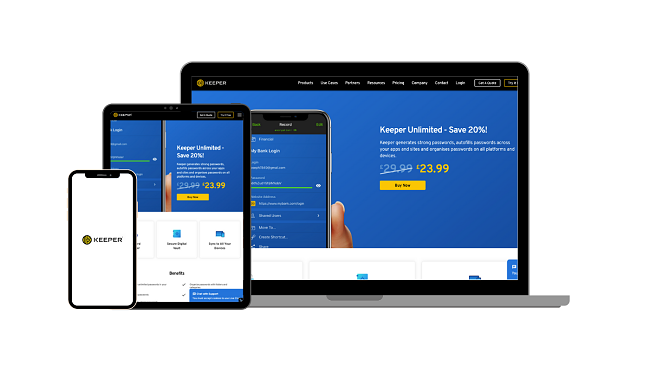
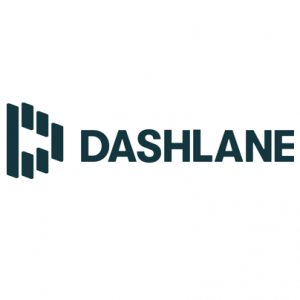
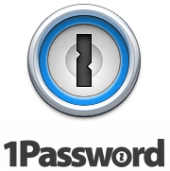


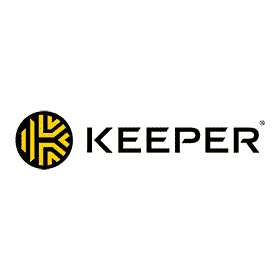

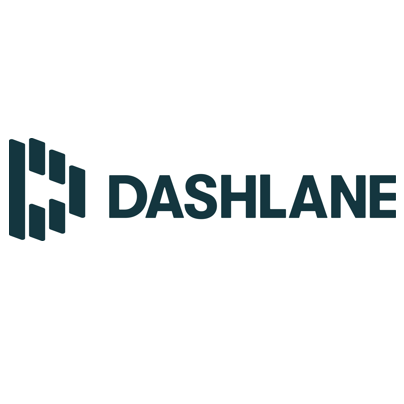
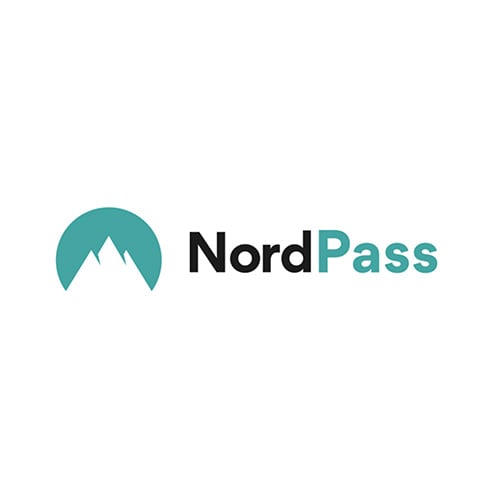


Leave a Comment
Cancel